Charlie Kirk once said:
“there is a fine-tuning problem to our existence that warrants there is a God.”
Even Christopher Hitchens had to admit it’s one of the strongest arguments for theism.
But what is fine-tuning… and why does it disprove atheism? 🧵
“there is a fine-tuning problem to our existence that warrants there is a God.”
Even Christopher Hitchens had to admit it’s one of the strongest arguments for theism.
But what is fine-tuning… and why does it disprove atheism? 🧵

Imagine getting into a car and turning on the radio.
You’re not surprised to find that music is playing.
At first you don’t think much of it, of course radios play music.
But then you look closer…
You’re not surprised to find that music is playing.
At first you don’t think much of it, of course radios play music.
But then you look closer…

You notice the tuning knobs are extremely sensitive.
If they were moved even slightly, the radio would only give static. No music.
Now what are the chances that those knobs just happened to be tuned exactly right to bring in the signal?
Pretty much zero.
If they were moved even slightly, the radio would only give static. No music.
Now what are the chances that those knobs just happened to be tuned exactly right to bring in the signal?
Pretty much zero.
That’s what scientists mean by fine-tuning.
Only instead of one radio knob, there are at around twenty fundamental “knobs,” these are constants and forces of nature.
Change any of them, even by the tiniest fraction, and life becomes impossible.
For example:
Only instead of one radio knob, there are at around twenty fundamental “knobs,” these are constants and forces of nature.
Change any of them, even by the tiniest fraction, and life becomes impossible.
For example:

The gravitational constant controls the force binding matter together.
If it varied by even 1 in 10^60, stars and planets couldn’t form.
This is like filling billions of Milky Way galaxies with pennies and then blindly picking the one correct penny.
If it varied by even 1 in 10^60, stars and planets couldn’t form.
This is like filling billions of Milky Way galaxies with pennies and then blindly picking the one correct penny.
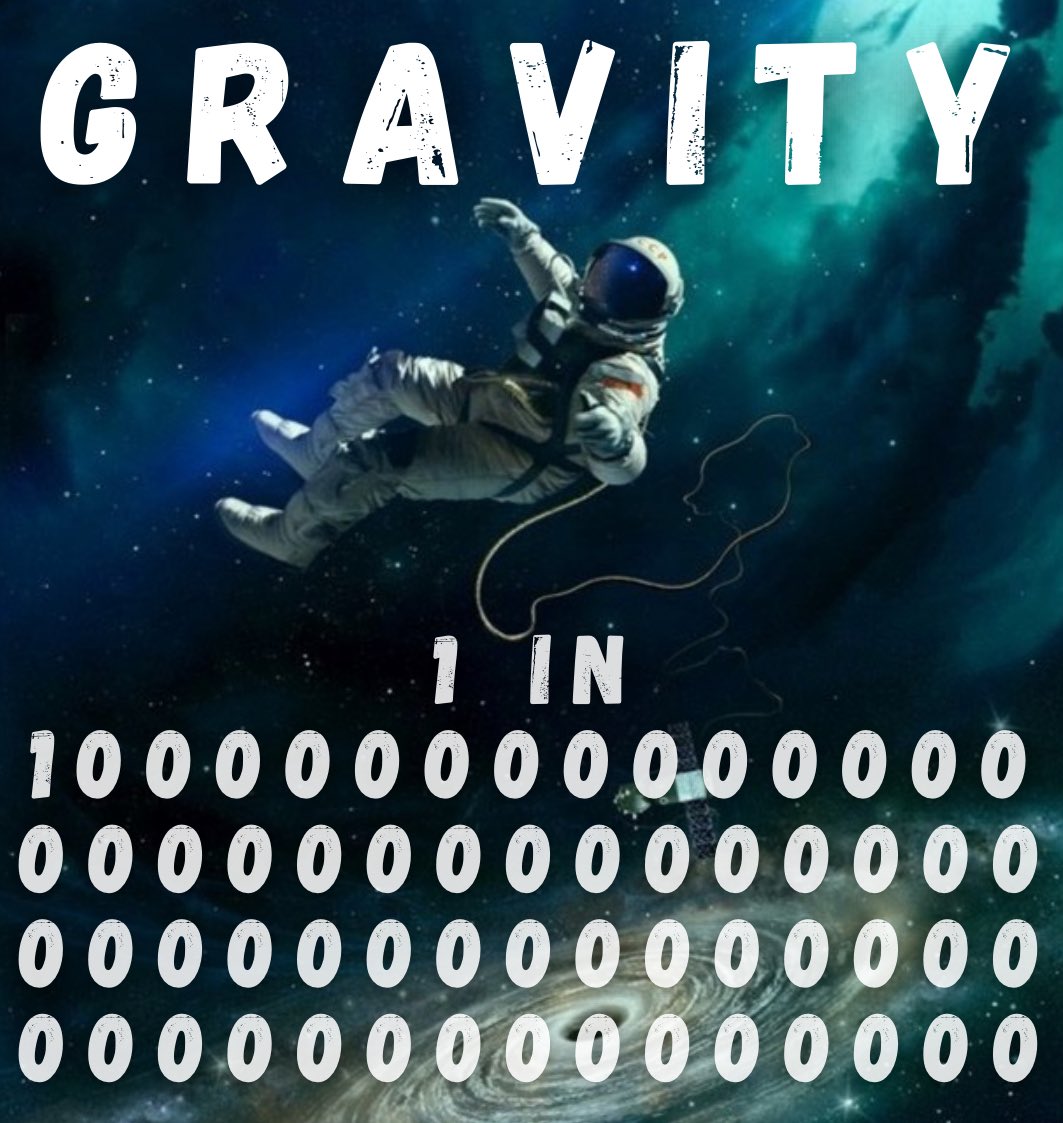
Electromagnetic Force Constant
The electromagnetic force holds atoms together.
If it changed by 1 part in 10^40, atoms couldn’t form.
Imagine covering a continent in sand stacked to the moon—and then blindly finding the 1 correct grain.
The electromagnetic force holds atoms together.
If it changed by 1 part in 10^40, atoms couldn’t form.
Imagine covering a continent in sand stacked to the moon—and then blindly finding the 1 correct grain.
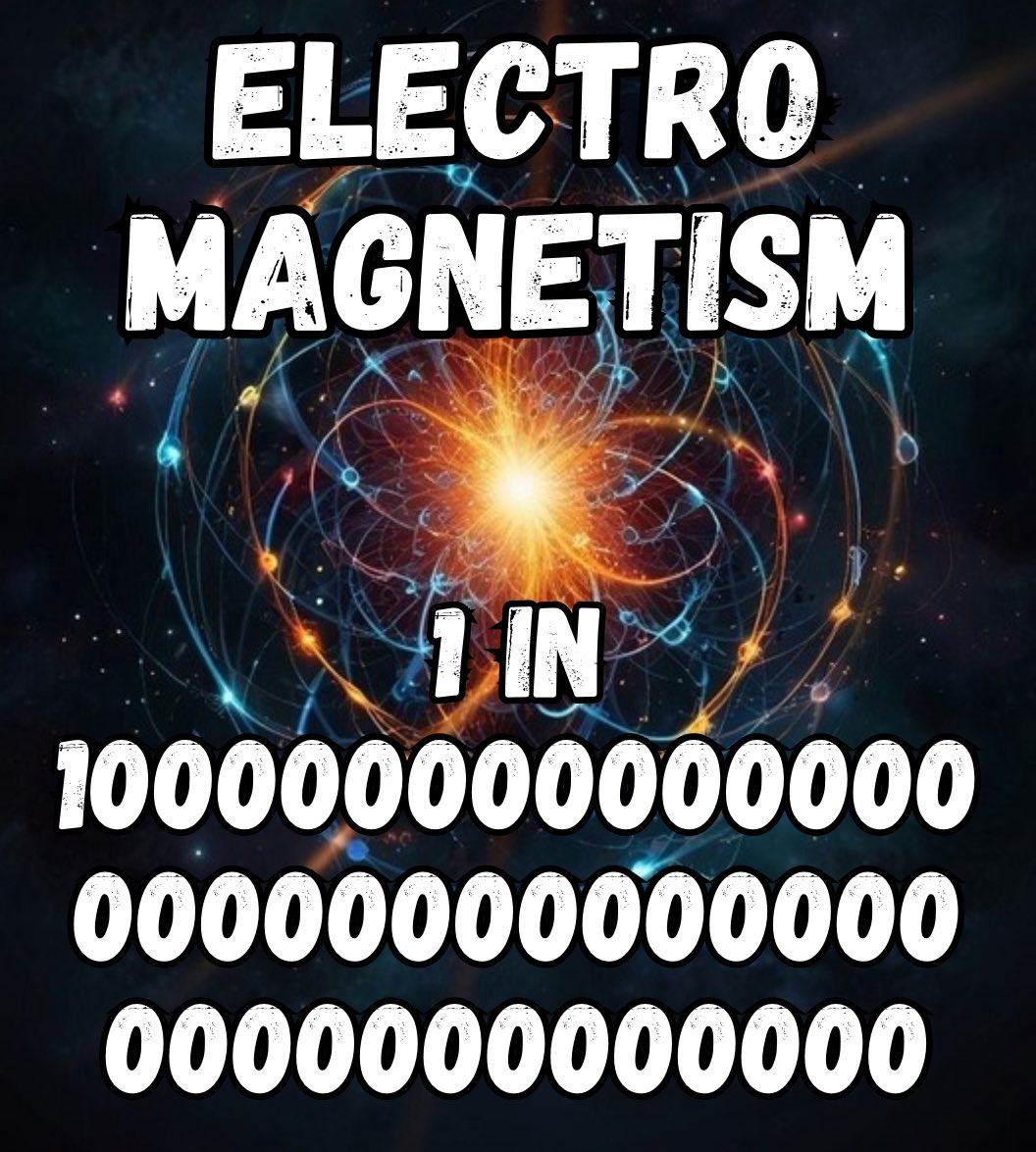
Ratio of Protons to Electrons
The proton-to-electron ratio keeps atoms stable.
If it differed by 1 part in 10^37, matter couldn’t hold together.
Imagine dealing yourself seven royal flushes in a row. That’s how improbable this is.
The proton-to-electron ratio keeps atoms stable.
If it differed by 1 part in 10^37, matter couldn’t hold together.
Imagine dealing yourself seven royal flushes in a row. That’s how improbable this is.
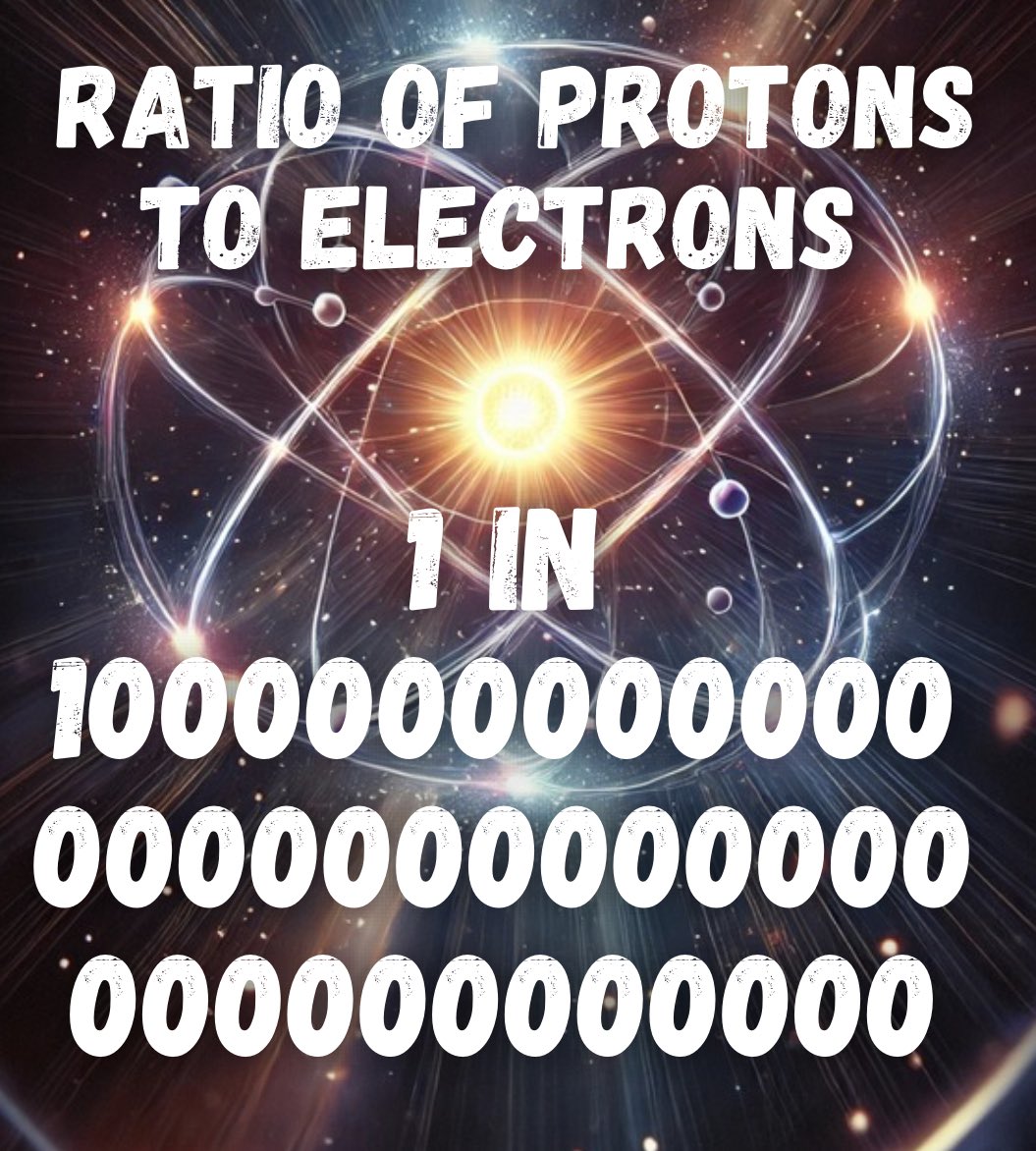
Rate of Universe Expansion
The universe’s expansion rate lets galaxies form.
If it varied by 1 part in 10^55, the universe would collapse or spread too thin.
That’s like randomly picking the correct grain of sand from all sand on Earth 10 billion times in a row.
The universe’s expansion rate lets galaxies form.
If it varied by 1 part in 10^55, the universe would collapse or spread too thin.
That’s like randomly picking the correct grain of sand from all sand on Earth 10 billion times in a row.
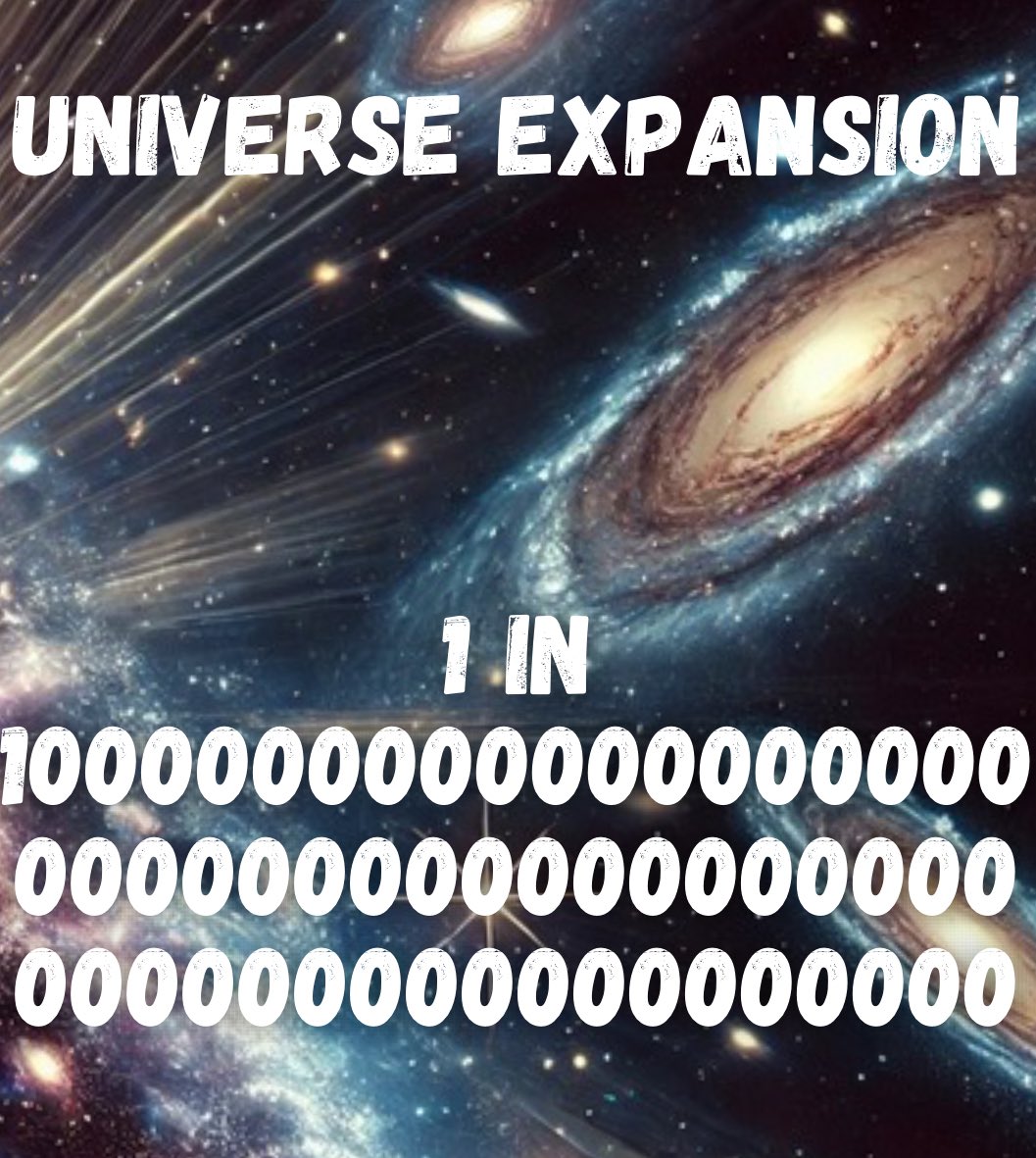
Strong Nuclear Force Constant
The strong force binds protons and neutrons in atoms.
If it changed by 1 part in 10^40, only hydrogen would exist or no atoms.
Imagine covering a billion Earths in dimes stacked to the moon and finding the one correctly marked dime.
The strong force binds protons and neutrons in atoms.
If it changed by 1 part in 10^40, only hydrogen would exist or no atoms.
Imagine covering a billion Earths in dimes stacked to the moon and finding the one correctly marked dime.
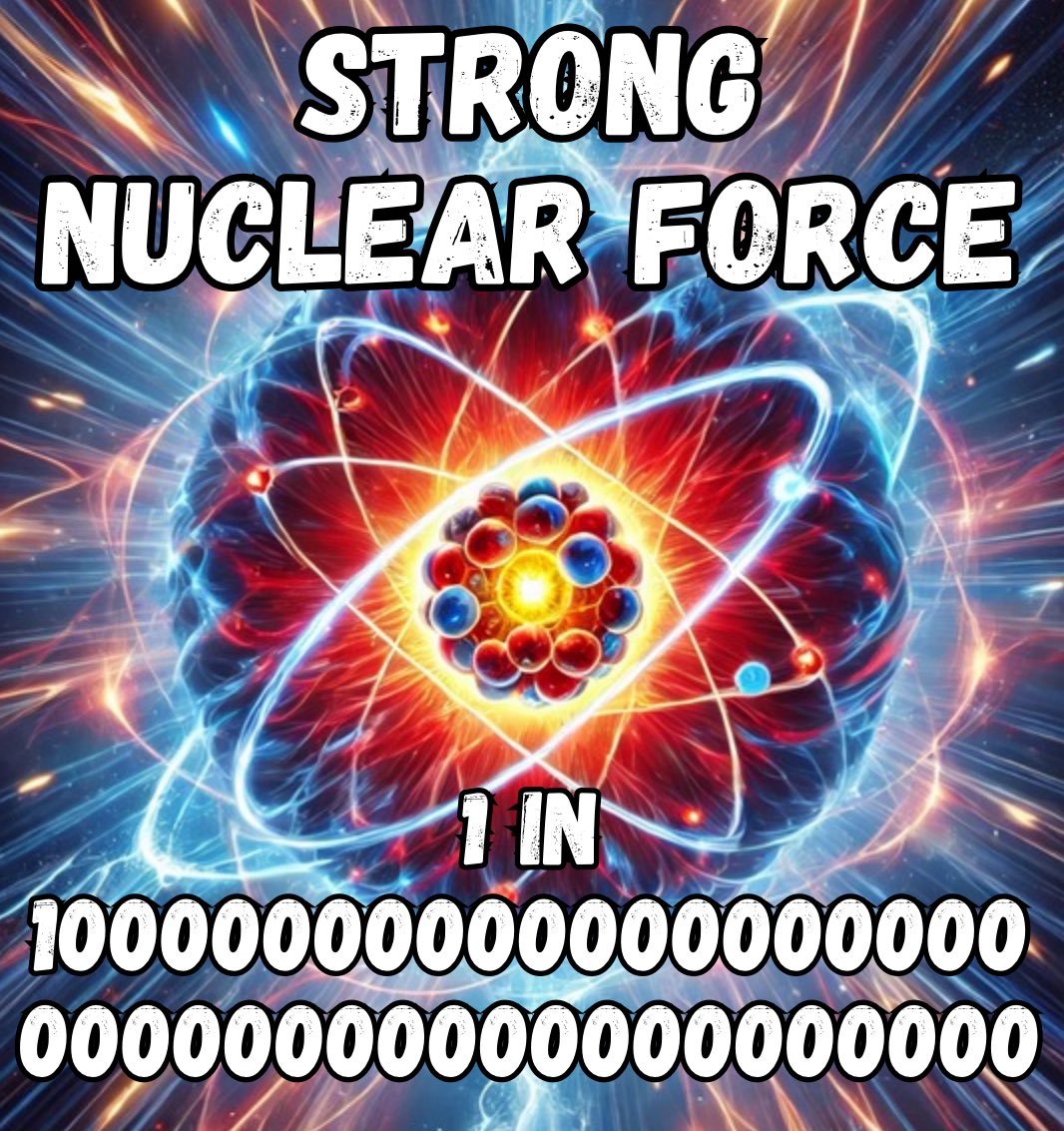
Cosmological Constant
The cosmological constant governs expansion.
If it varied by 1 part in 10^120, the universe would collapse or expand uncontrollably.
This number is so vast that it’s nearly impossible to find an analogy to capture the sheer improbability of it.
The cosmological constant governs expansion.
If it varied by 1 part in 10^120, the universe would collapse or expand uncontrollably.
This number is so vast that it’s nearly impossible to find an analogy to capture the sheer improbability of it.
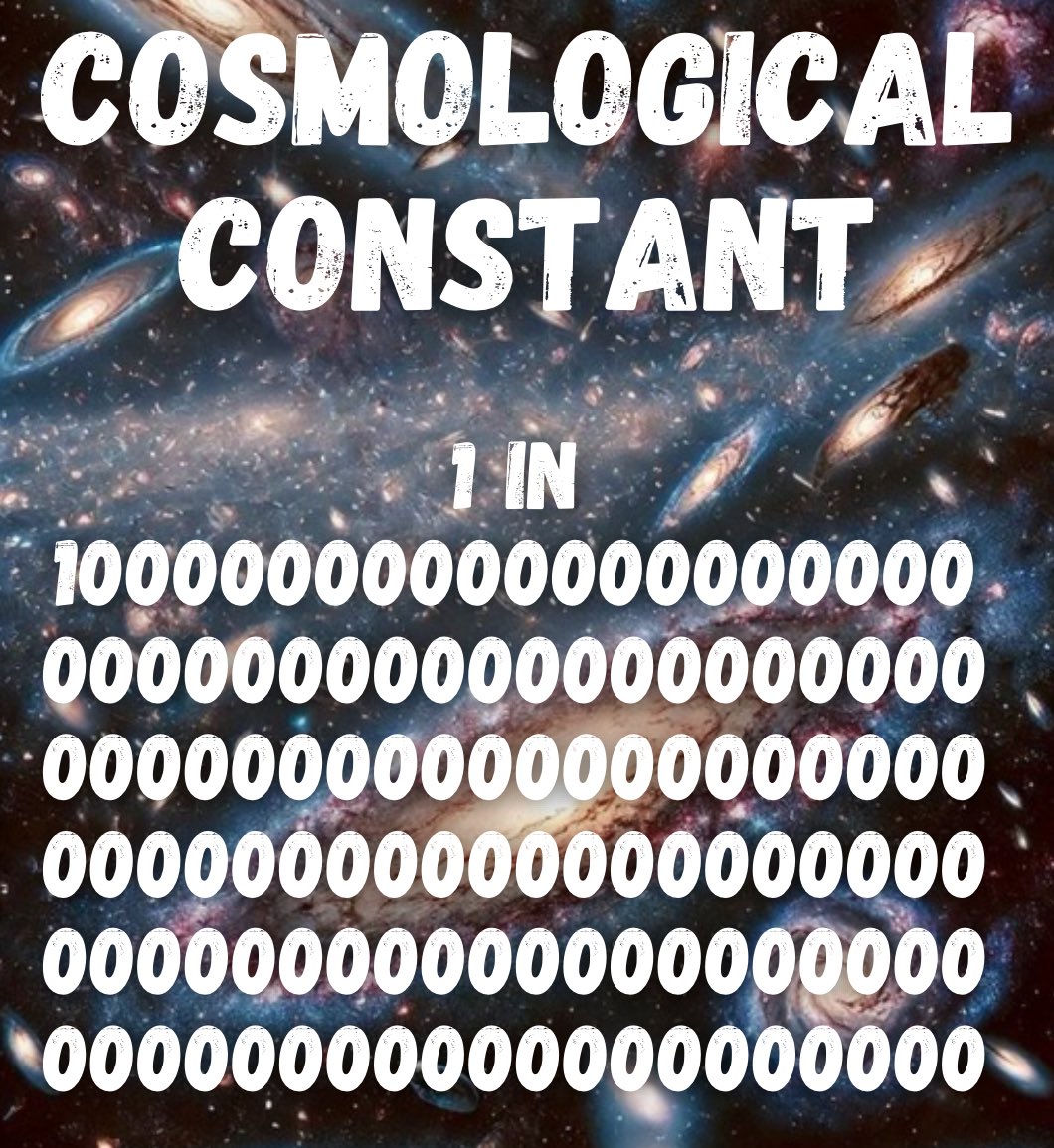
Initial Entropy of the Universe
The universe’s initial entropy allowed galaxies to form.
If it varied by 1 part in 10^10^123, matter couldn’t organize.
This number has more digits than there are particles in the universe and it’s not even close.
The universe’s initial entropy allowed galaxies to form.
If it varied by 1 part in 10^10^123, matter couldn’t organize.
This number has more digits than there are particles in the universe and it’s not even close.

Conclusion:
There are only two options for the amazing constants of our universe.
Either chance is responsible, or mind is responsible.
The odds of chance being responsible are effectively zero.
And so the **only** rational conclusion is that a mind is behind fine-tuning.
There are only two options for the amazing constants of our universe.
Either chance is responsible, or mind is responsible.
The odds of chance being responsible are effectively zero.
And so the **only** rational conclusion is that a mind is behind fine-tuning.

If you enjoyed this thread and want to help others to understand why theism is the only explanation for our world, please share this with others.
https://twitter.com/darwintojesus/status/1969212844324299005
• • •
Missing some Tweet in this thread? You can try to
force a refresh


















